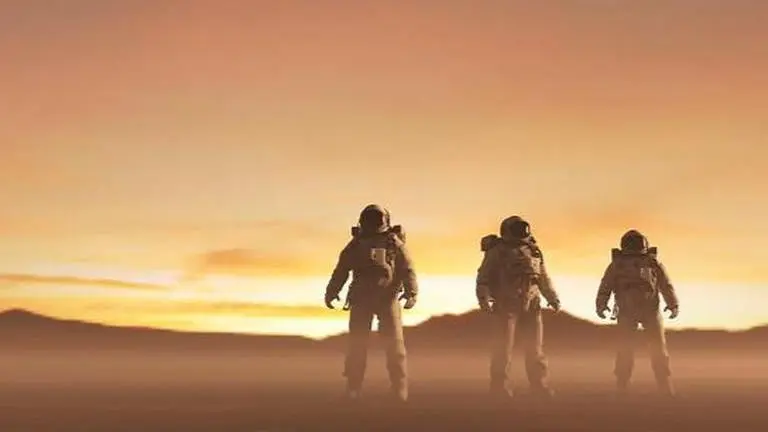Updated 4 January 2022 at 23:14 IST
Scientists to study ISS-bound astronauts to find anti-aging solution for Mars missions
Scientists have revealed that astronauts, who will embark on a 348 million kilometre journey to Mars, would age faster than people on Earth.
- Science News
- 3 min read

Health experts from the US-based Mayo Clinic have a new project in hand, which is to study the astronauts flying to the International Space Station (ISS) under a collaborative mission between NASA and Axiom Space. Named Ax-1, the mission is slated for launch on February 28 and will carry four astronauts to the ISS for an eight days-stay. This mission will serve as a testbed for Mayo Clinic as they aim to study the ageing process of astronauts, which according to scientists will shoot up significantly if they travel to Mars.
Scarily enough, scientists have revealed that astronauts, who will embark on a 348 million kilometre journey to Mars, would age faster than people on Earth. They argue that this is an issue that must be resolved to make humans ready for long-term space missions. Although the Ax-1 astronauts would not stay long enough to notice any change, Mayo Clinic scientists say that tracing even the earliest of signs can help solve the problem of accelerated ageing in astronauts.
Under their study, the scientists will look for signs of senescence, under which the cells stop dividing after a certain age and build up as tissues. The four astronauts of the Ax-1 flight will be observed before and after their mission to determine if the crew members developed any signs. Shedding more light on the study, Dr James Kirkland said as per Daily Mail-
If we see senescence under these conditions, we would want to do some work in preparation for a longer mission. This flight will give us an idea of whether routine spaceflight, without even going beyond the Van Allen belt, is associated with cell senescence.
Dr Kirkland added that if any signs are detected, they would definitely work towards finding a solution before interplanetary flights become feasible. He said that while just a trip to the ISS won’t cause much damage to astronauts’ health, the real worry is trips to Mars where humans will also be exposed to atomic radiation owing to the solar flares. Apart from their own study, the experts are also sending isolated human cells in a pre-senescent state to the ISS to determine if they undergo any effects.
Advertisement
Upon reaching the space station, the cells will be exposed to conditions such as zero gravity, solar radiation and a high carbon dioxide atmosphere, effects of which will be noted to determine if spaceflight causes cellular ageing. Interestingly, the authors of the study have revealed that they are already working on drugs known as senolytics, which are under clinical trials and have the potential to cure senescence.
NASA-Axiom Space heading towards launch
The Crew of Ax-1 is ready to liftoff on February 28 from the Kennedy Space Center in Florida. Consisting of four members, the team will hitch a ride in SpaceX’s Dragon capsule for a mission that will last for eight days. A completely private mission, Axiom's first customers include Larry Connor, a real estate and tech entrepreneur from Dayton, Ohio, Canadian financier Mark Pathy and Israeli businessman Eytan Stibbe and former NASA astronaut Michael Lopez-Alegria.
Advertisement
Image: Unsplash
Published By : Harsh Vardhan
Published On: 4 January 2022 at 23:14 IST
